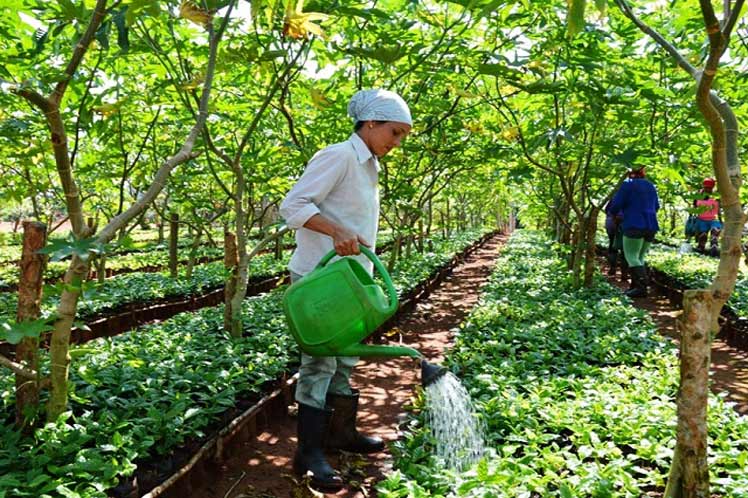That practice receives the greatest support from the country’s main authorities, officials, specialists and producers in the sector, especially at a time when the nation is facing the insufficient availability of inputs and other indispensable resources to develop agricultural crops.
Analysts agree that voices in favor of agroecology are growing not only in Cuba, but also in the world, including the United Nations Food and Agriculture Organization (FAO) and other international entities, which see it as a development strategy.
They also support that the proposed Policy for Agroecology in Cuba, presented in an exchange of Cuba’s President Miguel Diaz-Canel with scientists and experts working for food sovereignty and nutritional education, is a new endorsement of such practice in the country.
Such policy, fully integrated into the national economic development program, includes ideas and actions whose successful implementation represents a great challenge, experts consider.
In the opinion of Cuba’s Prime Minister Manuel Marrero Cruz, agroecology and other sustainable practices must be seen as a very necessary step, which will support food production and food sovereignty because of their economic and social implications for the country.
According to specialists, the greatest advance in this form of agriculture is expressed in the De campesino a Campesino agroecological movement, structured by the National Association of Small Farmers (ANAP), one of the main food domestic production forces.
Currently, over 159,000 farms participate in that movement (73 percent of those existing in the sector), which aims at transforming agriculture into a sustainable model.
Agroecology takes into account as a fundamental pillar for its development the traditional peasant experience, an inexhaustible source of knowledge that cannot be dismissed in the advancement of agriculture, the engineer Fernando Funes recently stated, one of the most experienced specialists in the field.
Also PhD in Production Ecology and Resource Conservation, Funes leads the family agroecological ‘Finca Marta’ project, a space in which he contributes to the transformation of the Cuban agricultural food system from a local agroecological experience.
ef/omr/mem/rs










